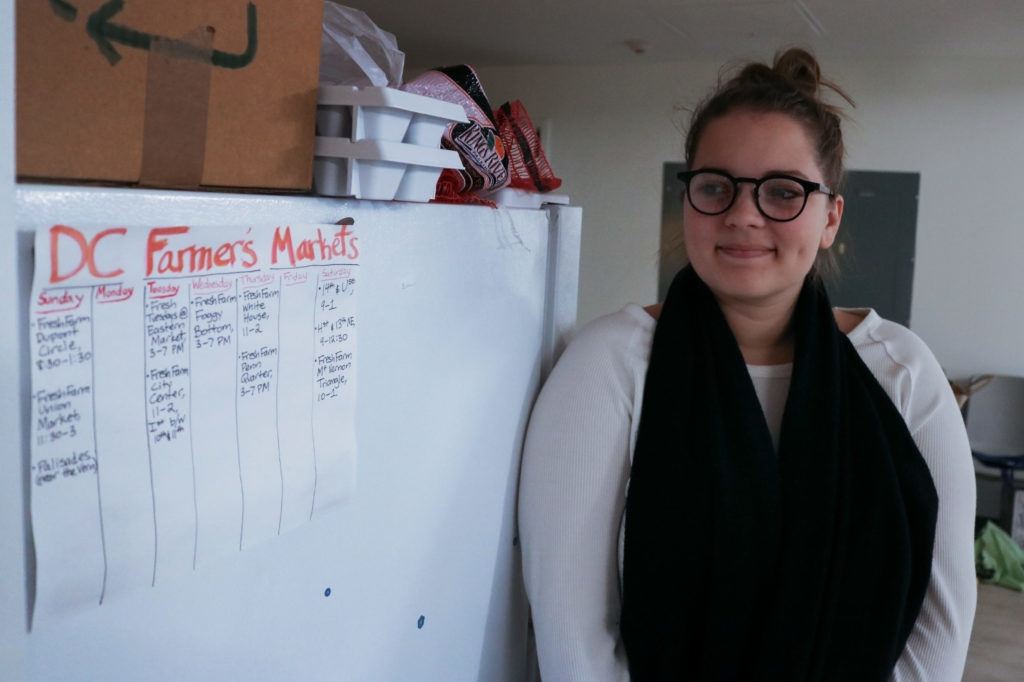As members of the sustainability affinity in District House prepare to live in the space for a second year, they have a new mission in mind: to live completely waste-free.
Leaders of the FoBoZero affinity say the 16 residents plan to create no trash and limit their use of nonrenewable energy sources to strengthen the impact of the environmental community on campus and educate more students about sustainable living.
Izzy Moody, the vice president of Green GW who helped coordinate the affinity but does not live there, said that during the first year, members of the affinity lived an eco-friendly lifestyle by recycling carefully and using the GroW Garden to compost food waste. Next year, the affinity’s members will use a “more intense” zero-waste plan, Moody said.
Moody said she hopes next year’s residents will encourage each other by hosting workshops on green living and composting and cooking together.
She added that next year’s affinity will feature a more intense effort than this year’s because more residents happen to be members of sustainability organizations or academic programs.
Dani Makous, a junior and the coordinator of the affinity, said educating people on how to reduce waste may should be easy because the people who choose to live there want to make changes to their daily behavior, she said.
“Being around people who are at least committing to learn about it and recognizing that they have more to learn does foster the kind of environment you need to grow and be better in your behavior,” she said.
Makous said that this year, affinity residents had conversations about the kinds of products and practices they could use to have a more sustainable lifestyle.
“Teaching them one thing that they didn’t know when they came in was important,” Makous said.
But there will be limits to how waste-free the students can be – the electricity and water in the affinity are supplied by GW, meaning students have little control over how they are produced, Makous said.
Dyan Harden, a front desk educator at Ecocycle Solutions, a non-profit organization focused on recycling and zero-waste, said transitioning to a waste-free lifestyle can be hard for college students because of the electronic waste they produce, like ink cartridges and used cell phones.
“It’s very expensive to recycle electronics,” she said. “Electronics have a lot of hazardous materials in them like heavy metals.”
She added composting reduces the impact of waste more than most people think, even though waste being composted is biodegradable.
“Because of the way landfills are made, they don’t biodegrade in the way they normally would,” Harden said. “It produces a lot of methane, which is one of the biggest gases of concern for climate change.”
Robyn Hathcock, a zero-waste administrative services manager at the University of Oregon, said going zero-waste in college is challenging, but that it’s a good time for students to try it out, especially if they are living with other people aiming for a zero-waste lifestyle.
“People are there to learn and experience new things and be exposed to opportunities and experiences that they may not have had available to them where they were coming from,” Hathcock said.





